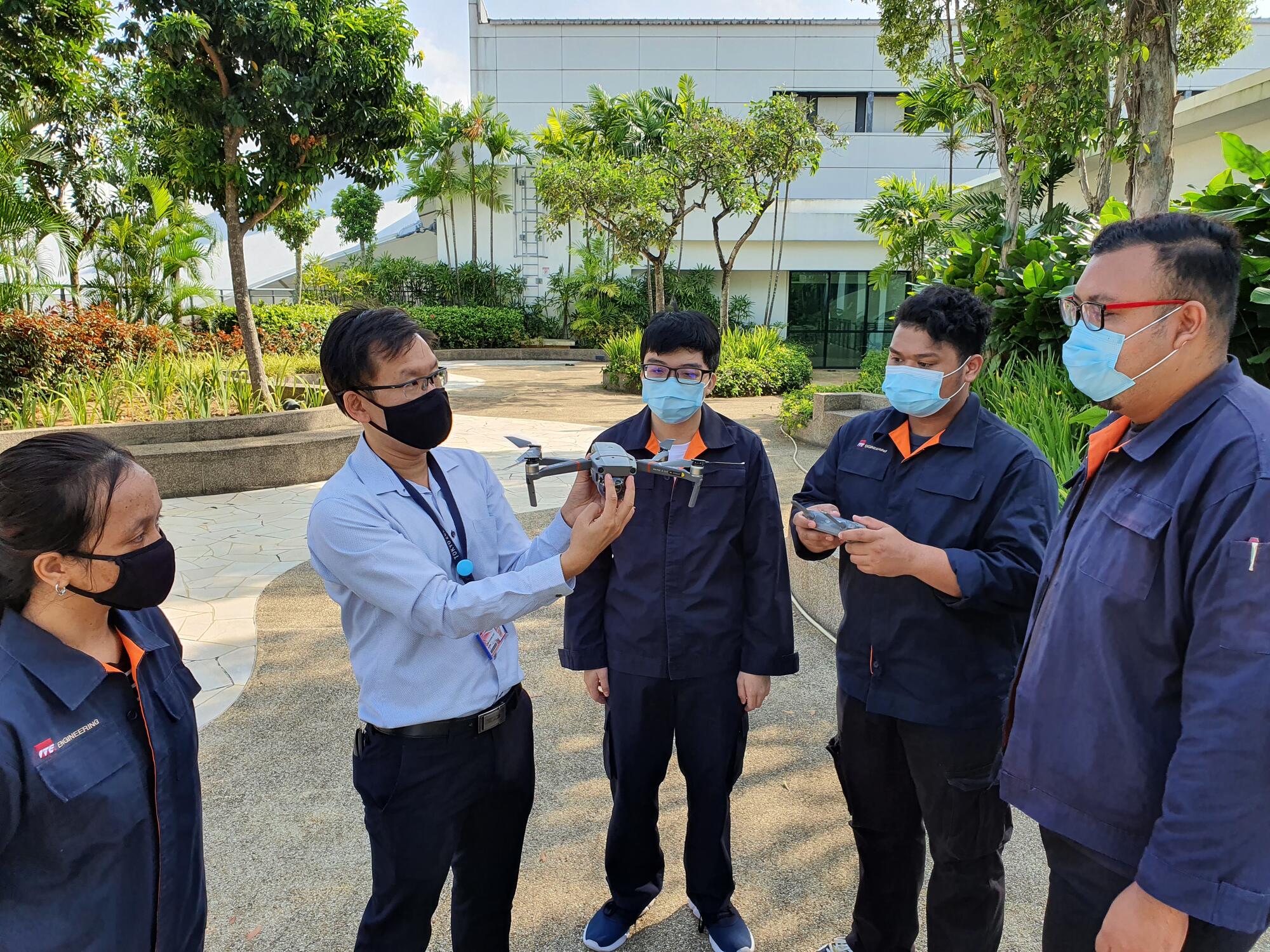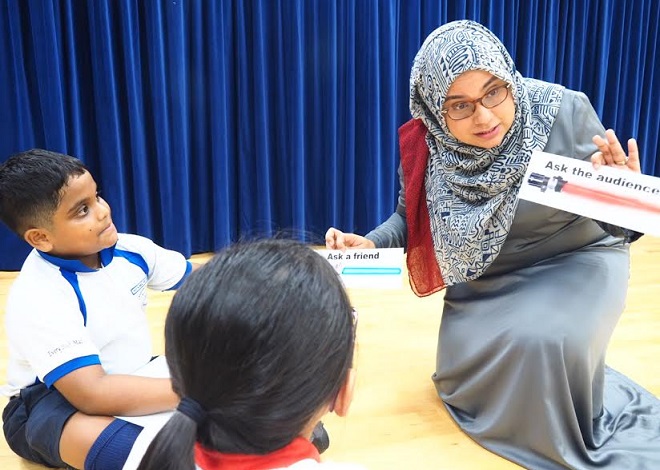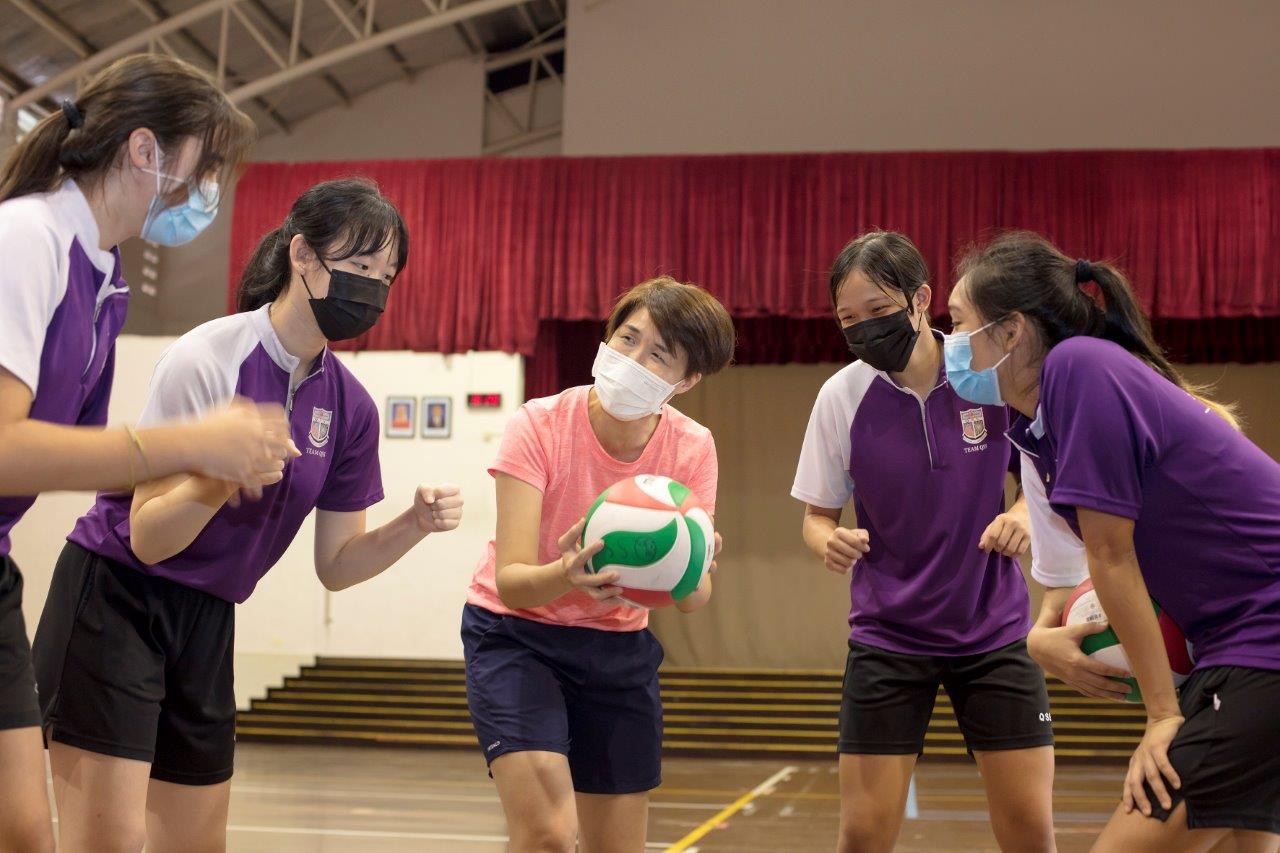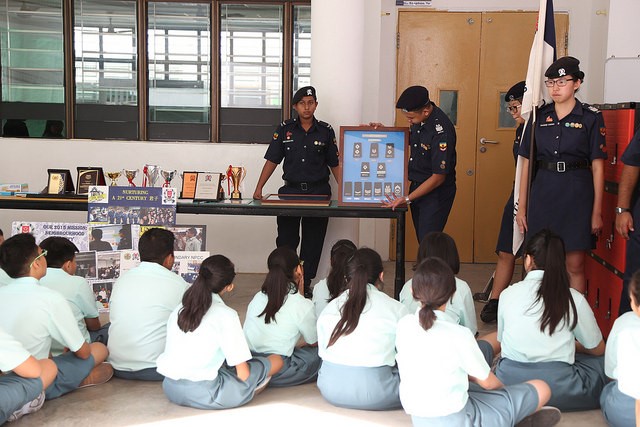Mr Low Choon Kiat Alvin, ITE College West, President’s Award for Teachers 2020 Finalist
At the start of each year, Alvin Low gets all his new students to doodle on an A3-sized piece of paper, with the instruction to draw what he calls their own “River of Life”.
It is meant to be a representation of each student’s backstory; challenges are depicted as mountains or thunderstorms, and happiness as rays of sunshine. The A3 artwork is filed into each student’s care folder, which is issued at the start of their first year in ITE.
A former ITE student himself, Alvin is well aware of the challenges some of these students face. Some students do not have the love and support of family members, while others are burdened with financial difficulties. For many, the course Alvin teaches – Built Environment and Facilities Management – is simply not their first choice.
Alvin does not let these challenges derail his attempts. “I have to be honest with them before expecting them to open up to me,” he said.
“I share with them that I was an ITE student, and electrical engineering was not my first choice.”
Upon completing Higher Nitec, he pursued a diploma in a Polytechnic and went on to graduate from Nanyang Technological University (NTU). He is now pursuing a part-time Masters of Science degree in Management of Technology at the National University of Singapore (NUS).
“Initially, I may have hated electrical engineering but now I’m teaching the subject – and cherishing it.”
Getting into the flow
Through the River of Life drawings, Alvin gets a snapshot of the highs and lows of a student’s life. No two drawings are the same. It gives him a picture of their strengths and weaknesses, too.
“Some students have difficulty in writing and expressing themselves. But most of our students seem pretty creative. I’ve been doing this River of Life activity with my classes for seven years now [as long as I have been teaching].”
At the end of each semester, after the examinations, Alvin sits down with each student and their River of Life drawing, to see how, perhaps, they might like to amend their masterpiece.
For students who have Alvin as their Class Advisor (which is a similar role to that of a form teacher), the River of Life now replaces the goal-setting forms and sheets.
Sparking interest to get the motor revving
Alvin knows full well that theory lessons bore his students to tears. “You just need to trigger their interest once. Soon, they’ll be interested and start to love the subject.”
One way he does this is with six Lego bricks. Each student is given a set of colourful bricks, as well as a series of tasks they need to perform – separately or cooperatively – that quickly bring their psychomotor skills into focus.
For example, Alvin may say “build a tower with your eyes closed” – which almost always ends up with a class doubled over with laughter. This tactic helps students hone their planning skills, develop their problem-solving abilities, sharpen their memory, spark their creativity and enhance self-confidence.
He also finds these bricks especially useful in helping students who have difficulty visualising 3D objects from various angles – something that is important for their course in Built Environments and Facilities Management.
In his effort to keep things interesting, Alvin has also organised an Amazing Race style challenge in which students had to seek out QR codes hidden across the campus to learn the meaning behind a specific piece of equipment or location within the buildings.
A third tactic: Learning Through Filming. Students form groups to script, act, direct and film their own instructional video on a given topic. Students then share their videos with their classmates. While mastering the technical abilities, students are also sharpening their soft skills in cooperating, communicating and planning.
One of the subjects assigned was to pair a drone with a new controller, a topic that is outside the syllabus. Alvin, a self-professed techie, said he made them do it because he noticed that drones have become an important tool for facilities management, being used to survey railway tracks and other sprawling infrastructure.
He also likes to select student leaders from their own peer groups. For instance, he chooses older students (24- or 25-year-olds) who enrol after completing their National Service (NS).
“I get them to share their thoughts about the importance of pursuing an education after NS. I make them talk about why they chose to come to ITE so their classmates see that people do choose to come to ITE.”
Skills that flip the switch on your future
Application of skills is something that Alvin is passionate about. As such, he relishes his role as overall internship coordinator for the School of Engineering.
“I’m privileged to have this role. I get to see my students apply their skill sets. I also get to talk to industry partners to find out their human resource needs so that we can better prepare our students for the workforce,” he declared.
By speaking to companies, he learns where job opportunities are likely to cluster in future. For instance, he says, “I know that Facilities Management is a sunrise industry and the demand is there.”
A high point of his role as internship coordinator came in 2019 when he placed two students with autism in internships at Siloso Beach and KidZania. Both students were able to complete the full 10 weeks of internship.
“I was worried at the start. I wasn’t sure the students, especially the one with the more severe autism, would know how to go to and from Siloso Beach. My colleague and I decided to go down to Sentosa to make sure he made it to the interview,” he said.
“We learnt from the HR staff that despite the student getting lost on cable cars and tram rides, he arrived on time for the interview.”
Sparking real life success
From their second year, Alvin also challenges his students to take part in competitions to put into practice the skills they have picked up in class – such as handling air conditioning, piping and plumbing, electrical installation and moderating energy consumption.
Through the power of teamwork, his students turn classroom concepts into reality – thereby learning more about themselves.
He likes to cite the example of Nasrullah, who took part in the Sembcorp Greenwave Competition in 2019 with his team. They presented a water recycling system, which channelled condensation from air-con units into the toilet cisterns for flushing.
“Through the process of taking part in the competition, Nasrullah [who was reserved, found his] self-confidence was boosted.”
“When it comes to competitions, I always remind my students that winning is a bonus, what is more important is the process of learning and bonding with their team mates.” Nasrullah’s team did, in fact, win.
Alvin has been encouraging students to participate in the Tan Kah Kee Young Inventors’ Awards. It is known for its tough admission interview, but that only serves to motivate Alvin to see more of his students enter the competition.
As one who lives by the motto, “perseverance is the key to success”, Alvin does not give up easily. In these seven years, he has walked alongside his students through the peaks and valleys of their lives as a teacher, mentor, friend and brother, unwavering in his support and care.
“I was fortunate to have really good teachers in ITE. That’s why I’m here. I’m giving back to the institution that raised me up and gave me confidence.”






